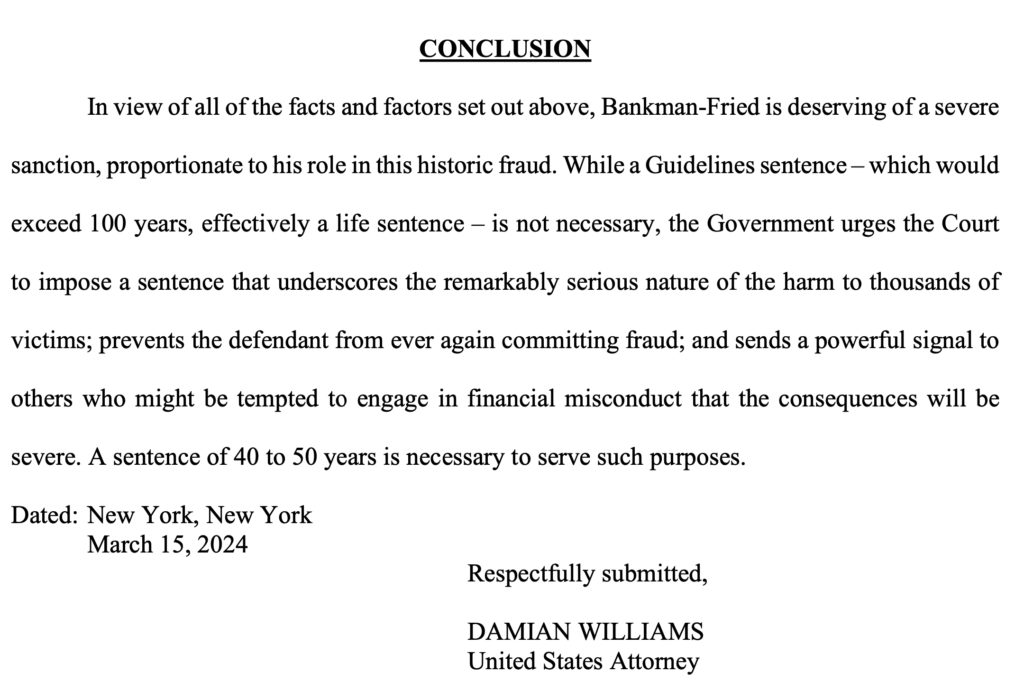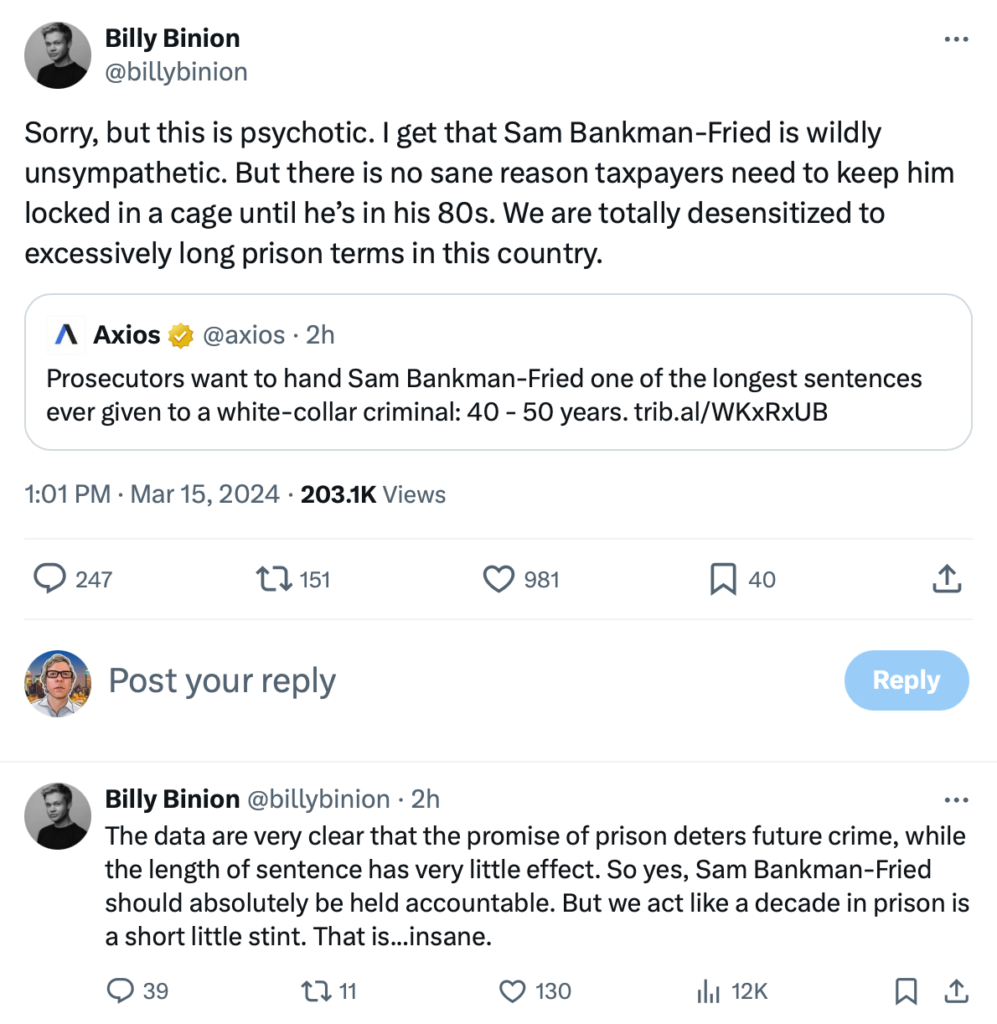Former CEO of FTX faces a potential 110-year prison sentence from prosecutors for various crimes including wire fraud.
The former chief executive officer of the defunct cryptocurrency exchange FTX and convicted fraudster Sam Bankman-Fried are being asked by the prosecution to serve 40 to 50 years in prison. Under the statute, he may be sentenced to a maximum of 110 years.
Prosecutors Level Evidence Against SBF
This 116-page government sentencing memorandum, which was handed over to Judge Lewis Kaplan on March 15, provides a detailed account of Bankman-Fried’s activities, with a particular emphasis on the following five points: Bankman-Fried’s effort to make unlawful political contributions, his attempt to bribe Chinese government officials, his misbehavior in banking, his attempts to divert blame and his many obstacles to justice are all examples of his actions.
Since the prosecutors of The Bahamas did not extradite Bankman-Fried on the charge of illicit political contributions, he was not charged with receiving such payments. In addition, he was not accused of bribing Chinese government officials.
“The defendant has failed to take genuine responsibility for his role in the collapse of FTX and the loss of customer funds.”
A further statement included in the memorandum was that the sentence that Bankman-Fried was given ought to be subject to many increases because of the seriousness of his offenses.
The article made numerous comparisons between Bankman-Fried and other financial crooks, including Bernie Madoff, a New York financier responsible for administering the most significant Ponzi scheme in the history of the world.
In addition, it contained four pages of accounts about the turmoil that victims of Bankman-Fried’s deception had due to the losses that the collapse of FTX brought on them. Bankman-Fried was found guilty of seven crimes on November 2nd.

These charges included two counts of wire fraud, two counts of wire fraud conspiracy, one count of securities fraud, one count of commodities fraud conspiracy, and one act of money laundering conspiracy.
Legal representation for him submitted a request to the court requesting a maximum sentence of six and a half years. He had entered a plea of not guilty to every charge.

The prosecutors stated that a sentence of 40 to 50 years would “permit the defendant to return to liberty after society can be assured that he will not have the opportunity to turn back to fraud and deceit,” while at the same time “reflecting the seriousness of the defendant’s crimes.”
In addition to this, the prosecutors demand that he be awarded a judgment of $11 billion. There is no obligation placed on Judge Kaplan of the District Court of Southern New York to comply with the recommendations that are included in the memorandum given by the administration. The date of the sentencing is March 28.












